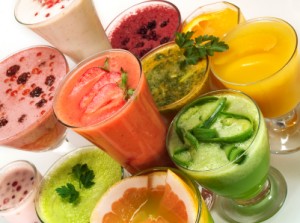 What should I eat to prepare for pregnancy?
What should I eat to prepare for pregnancy?
You should eat a balanced and healthy diet which include food rich in proteins such as milk, fish, eggs, meat and poultry; starchy food for example rice, bread and potato and include a lot of vegetables and fruits in your diet too. In addition, you should also take foods that are rich in folic acid such as spinach, asparagus, broccoli, beetroot, chickpeas, soybeans, tofu, salmon, orange juice, avocado and fortified cereals.
Why do I need to get supplementation to prepare for pregnancy?
Even though a healthy balanced diet is the best way to get the essential nutrients that you require during pregnancy, it is good to supplement your diet with prenatal vitamins as majority of us due to perhaps our hectic modern lifestyle are unable to eat a good balanced diet and often skipped meals. Supplementation taken prior to pregnancy on a daily basis ensures that you have the right amount of nutrients even before embarking on a pregnancy.
What supplementation do I need?
Prenatal vitamin
Prenatal vitamin supplementation maybe advised by your doctors to cover any possible deficiency of minerals in your diet. Ask your doctor about it.
Folic acid
This is one of the most important vitamin supplements to take and most likely would be included in your prenatal vitamin. It is a water-soluble vitamin B. It should be taken 3 months prior to pregnancy until the 12th week of pregnancy to help prevent neural tube defect. The neural tube develops into the brain and spinal cord. Spina bifida is the most common neural tube defect where the lower part of the spinal cord fails to close leading to paralysis and lifelong disabilities. It is recommended to take at least 400 microgram of folic acid pre-pregnancy which could help reduce spina bifida by up to 70%. However, those women with previous history of a child with neural tube defect, epilepsy and diabetes will require a higher dose of 4mg.
Calcium
Calcium is important for your circulatory, muscle and nervous system to function well. In addition, it helps to build strong bones and teeth for your developing baby. It is recommended that women taken at least 1000 mg calcium a day when considering to get pregnant. You could get your calcium intake from dairy products such as milk, yoghurt and cheese. Those who does not eat dairy products or are lactose- intolerant could get your calcium from other sources such as tofu, calcium-fortified breads or cereals, sardines and salmon. Ask your doctor about it.
What food should I avoid before and during pregnancy?
- Soft cheese as they may contain Listeriosis that could cause prematurity and growth problems.
- Pate
- Raw and uncooked fish and seafood (e.g shellfish, oysters and clams, sushi)
- Raw eggs and undercooked meat or chickens
- Soft whipped cream
- Unpasteurized dairy products
What is probiotics?
Probiotics are live microorganisms (mostly bacteria) which are naturally found in our intestines. There are known as the ‘good and friendly’ bacteria that helps break down the food in the gut, forms part of our immune system and prevents infections. They may also aid in proper digestion, reduce the discomforts in pregnancy such as constipation, vaginal yeast infection, bloating, heart burn and frequent urination. Probiotics could be found in both food and supplements. Food containing probiotics include ‘live’ yoghurt, yoghurt drinks, fermented drinks, miso, some juices and soya drink. Probiotics from natural food and supplements are considered safe in pregnancy and so far studies have not shown any serious effects from taking it.1
What is Omega-3 Fatty Acid?
This supplement is recommended for pregnant and nursing mothers by the US National Institute Health. The Docosahexaenoic Acid (DHA) in omega-3 fats is important for your baby’s brain, nerve and tissue development. Hence, it is considered as baby’s brain food. It is important to take pure high quality omega-3 fatty acid oil supplement which is purified and has all toxins especially mercury contaminants removed from the fish that it is made out of.2
How about caffeine, alcohol and artificial sweeteners?
The effect of alcohol is dose-related where it could lead to birth defects, growth problems, mental retardation and abnormal behavior development. As we do not know the exact amount that could perhaps lead to adverse effect on the fetus, it is best to avoid alcohol altogether especially in the first three months of pregnancy.
Caffeine has several adverse effects that may be harmful during pregnancy. It is a stimulant which could lead to increase blood pressure and heart rate not only the mother but also the fetus as it crosses the placenta. In addition, it is associated with delayed pregnancy and miscarriages in moderate amount. It is best to start cutting back on caffeine even before pregnancy to prevent cravings later on. Beware that caffeine is not only found in coffee but also tea, chocolate and soda.
In the USA, artificial sweeteners such as aspartame, saccharin and acesulfame K are approved for usage as sugar replacements and is considered safe during pregnancy. However, those patients with phenylketonuria (PKU) should not take aspartame.
RECOMMENDED BOOKS:
[easyazon-image align=”none” asin=”1402213387″ locale=”us” height=”160″ src=”http://ecx.images-amazon.com/images/I/41VMVWQuzCL._SL160_.jpg” width=”106″] [easyazon-image align=”none” asin=”0020654413″ locale=”us” height=”160″ src=”http://ecx.images-amazon.com/images/I/51rMjAslAdL._SL160_.jpg” width=”104″] [easyazon-image align=”none” asin=”0743224523″ locale=”us” height=”160″ src=”http://ecx.images-amazon.com/images/I/51IqRRJG0KL._SL160_.jpg” width=”107″] [easyazon-image align=”none” asin=”0425196143″ locale=”us” height=”160″ src=”http://ecx.images-amazon.com/images/I/51KrjI%2BQHuL._SL160_.jpg” width=”107″] [easyazon-image align=”none” asin=”0756628547″ locale=”us” height=”160″ src=”http://ecx.images-amazon.com/images/I/51P4cI791cL._SL160_.jpg” width=”124″]
REFERENCE
1. Osborn DA, Sinn JK. Probiotics in infants for prevention of allergic disease and food hypersensitivity. Cochrane Database of Systemic Reviews. Issue 4 Art No.: CD006475.
2. Making A Healthy baby. Dr Bruce Miller. Oak Publications 2008.
Filed under Staying Healthy in Pregnancy | No Comments
 What should I eat to prepare for pregnancy?
What should I eat to prepare for pregnancy?







